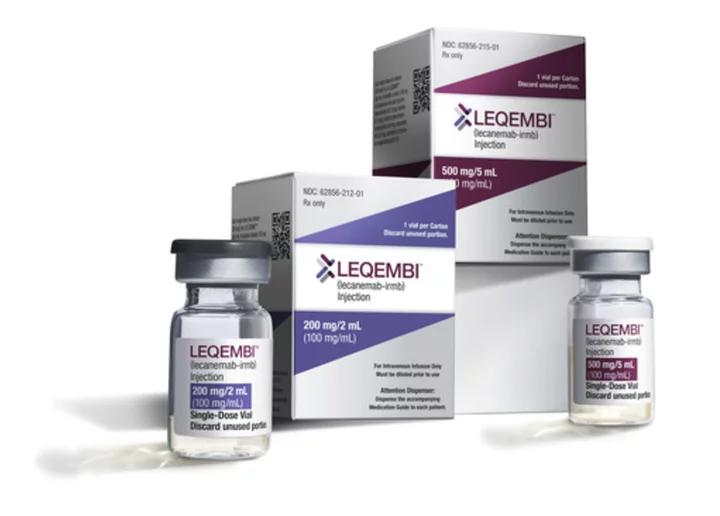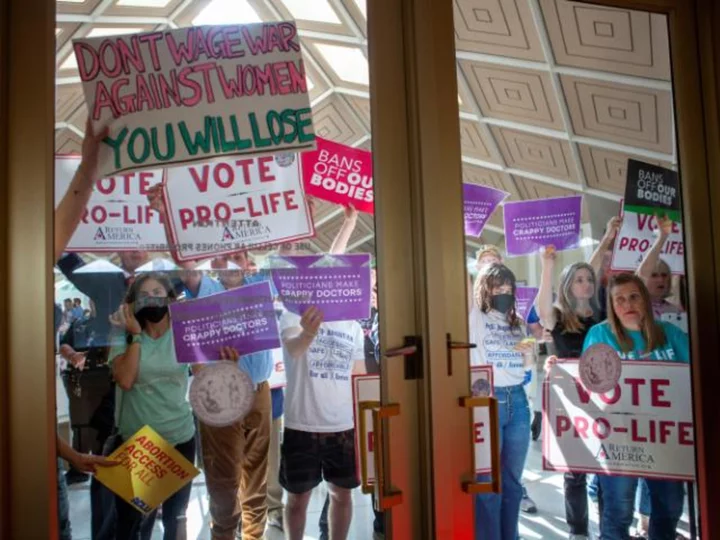The Biden administration formally halted the Wuhan Institute of Virology’s access to US funding, citing unanswered safety and security questions for the facility at the center of the Covid lab leak theory.
The Department of Health and Human Services notified the institute about the suspension on Monday and told the lab it’s seeking to cut it off permanently, according to a memo obtained by Bloomberg News. An HHS review that started in September raised concern that the facility based in Wuhan, where Covid first emerged, is violating biosafety protocols and isn’t complying with US regulations.
The penalties are the most drastic action the US has taken over the lab’s failure to share information amid ongoing investigations into Covid’s origins. They come as leaders in the US and China are trying to establish a better working relationship between the two countries as both continue to deal with the economic fallout of the pandemic that killed 7 million people.
The action guarantees that a once-lauded global research institute won’t receive any more US federal funding, an HHS spokesperson said in an emailed statement. The Wuhan Institute of Virology has received more than $1.4 million in federal awards, including through subgrants from the National Institutes of Health, since 2014. It hasn’t obtained new NIH dollars since July 2020.
The institute has become a flashpoint in discussions of how the pandemic started, with some, including FBI Director Christopher Wray, suspecting it could have originated at the facility.
Read More: Covid Lab-Leak Fight Masks Global Rise of High-Security Biolabs
Though the US hasn’t found any conclusive evidence that the virus emerged either through animal-to-human transmission or a lab accident, it has identified significant breaches in safety and security protocol at the Wuhan Institute of Virology. The US has also accused China and the lab of stonewalling investigations into those shortcomings.
China’s foreign affairs ministry said it understood WIV hasn’t applied for and isn’t conducting any US-funded research, and the country is dedicated to global cooperation on science, technology and public health.
“The virus is a common enemy of mankind,” according to a statement from the spokesperson’s office. “We hope the US can work with China and jointly respond to global challenges.”
2014 Grant
In 2014, the NIH awarded a grant to EcoHealth Alliance, a US-based organization focused on preventing infectious diseases, for “understanding the risk of bat coronavirus emergence.” The Wuhan Institute of Virology received a subaward of that grant, which has faced scrutiny over concerns of it supporting so-called gain-of-function research, where a pathogen is altered to improve its ability to cause disease.
A US Government Accountability Office report found the WIV received the $1.4 million between 2014 and 2020, distributed from the NIH and US Agency for International Development through subawards.
Earlier this year, HHS’s Office of Inspector General conducted an audit that determined that the NIH and EcoHealth Alliance didn’t effectively monitor awards and subawards, limiting their ability to understand the nature of research conducted and identify problem areas.
In the wake of the HHS decision to suspend and potentially disbar the Wuhan lab, House Republicans called for the department to “consider a similar debarment for EcoHealth Alliance.”
The Wuhan Institute of Virology’s leadership hasn’t yet responded to the US government since its decision to make the lab ineligible for future federal awards, including new contracts, grants and other transactions, the HHS spokesperson said.
The lab won’t be able to conduct any business with the US as an agent or representative of others, and its affiliation with any organization that does business with the federal government will also be carefully examined.
Read More: Covid-19 Origins Remain a Mystery, Declassified Report Shows
The Wuhan lab can, however, contest the suspension and proposed debarment. An HHS debarment is a relatively rare event: The agency debarred 15 entities in 2020, according to its most recent public report on the actions.
The HHS reached its decision to suspend and potentially debar the lab independently of the US intelligence community, which has long been investigating the novel coronavirus’s emergence in Wuhan in late 2019.
Read More: The Last–And Only–Foreign Scientist in the Wuhan Lab Speaks Out
Last month, the Office of the Director of National Intelligence released a declassified report that identified safety and security issues at the institute that could have increased the risk of accidental exposure to viruses. Still, the intelligence community said it’s not aware of a specific biosafety incident that may have spurred the pandemic.
That report came months after President Joe Biden signed a bill into law requiring declassification of intelligence related to the pandemic’s potential links to the lab.
--With assistance from Michelle Fay Cortez, John Harney, Dong Lyu, Colum Murphy and Jing Li.
(Updates with response from Chinese foreign ministry in the seventh and eighth paragraphs)









